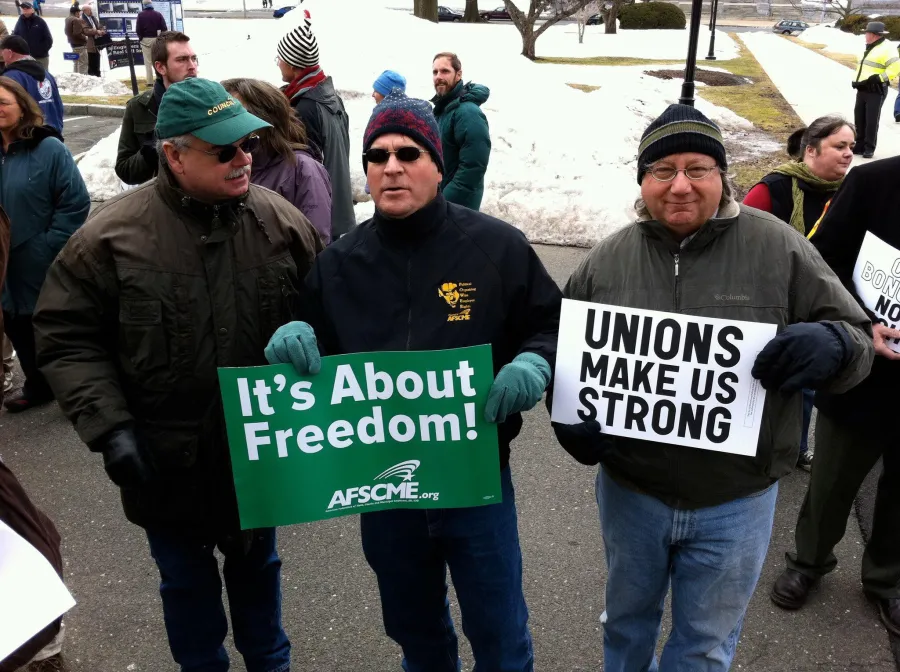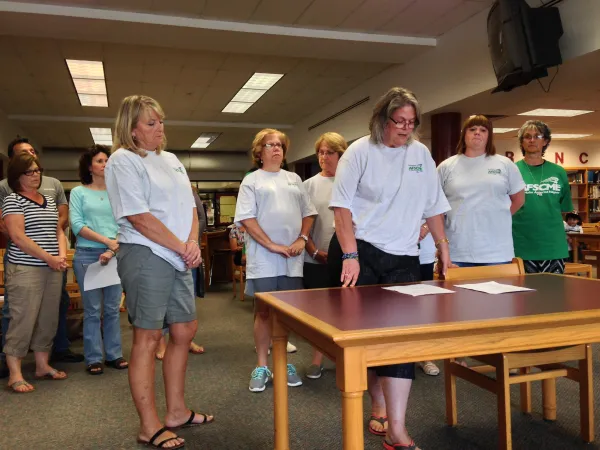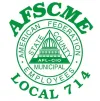Council 4 Members Call Janus Case An Assault on Our Freedom

For Immediate Release
Oct. 23, 2017
Council 4 members are responding to the U.S. Supreme Court’s decision last month to grant Certiorari in Janus v. AFSCME Council 31, which would make the entire public sector “right-to-work” in one fell swoop.
“Let’s be clear. The phrase ‘Right to Work’ is a misnomer. It’s really ‘Right to Work for Less,’ because this law drives down the wages, benefits and living standards of all workers in states where it’s been enacted,” said Council 4 Executive Director Sal Luciano.
“Corporations, wealthy interests and politicians manufactured Janus as part of their long and coordinated war against unions,” Luciano added. “Their goal is to further weaken workers’ freedom to join together in a union and to further diminish workers’ strength.”
The Janus case started with an overt political attempt by the billionaire governor of Illinois, Bruce Rauner, to attack public service workers through the courts. Since 1977, a Supreme Court case called Abood v. Detroit Board of Education, has effectively governed union representation and participation for public sector.
“The billionaires and CEOs behind this case don’t believe that working people deserve the same freedoms they have: to negotiate a fair return on our work,” said Merisa Williams, a secretary at Western Connecticut State University and Vice President of AFSCME Local 562.Under the precedent established by Abood, non-union members still have to pay so-called agency or “fair share” fees to unions that negotiate on their behalf. Janus could make fair share fees unconstitutional, thus requiring unions to represent members who pay nothing for the right of representation.
“They’re trying to cripple the union movement. As a dedicated public worker and a hard-working single mother trying to stay in the middle class, I take exception to this politically motivated attack. We’re not going to let it happen."
Williams said union representation has empowered working women like herself, pointing to the successful and historic push for pay equity in Connecticut’s public sector to address the imbalance in wages between men and women performing similar jobs.
Derek Puorro, a Middletown police detective and chair of the AFSCME Connecticut Public Safety Council that advocates for more than 2,000 Council 4-represented police officers, voiced concern that the Janus case could harm the law enforcement and public safety communities.
“We have a unique responsibility as police officers that requires effective union representation,” said Puorro, a member of AFSCME Local 1361 who sits on the Council 4 Executive Board. “Belonging to a union gives us a strong voice on the job, and ensures we have due process.”
Puorro noted that AFSCME has effectively represented police officers both at the bargaining table and at the state legislature, where numerous anti-police bills are raised every session. “It’s important for lawmakers to hear our voice, and the union gives us that voice,” he commented.

“When working people are able to join strong unions, we are better able stand up for the staffing levels and program quality,” Clark-Cole commented. “We’re here for the kids. At the same time, union membership provides us the freedoms we deserve but might not get without collective bargaining, whether it’s decent health care, retirement security or time off from work to care for a family member.”
The national AFSCME union, which represents 1.6 million workers nationwide, has urged the Supreme Court to honor the 40 years of precedent and sound law established in Abood.
State affiliates like Council 4 are working to educate their members about the Janus case and its harmful consequences. Union members have been educating their peers about implications of the case and how best to mobilize if the Supreme Court rules in favor of the plaintiff.
“Belonging to a union gives us a voice on the job and the respect we need to advocate for some of the state’s most vulnerable citizens,” said Jay Bartolomei, an eligibility services supervisor at the Department of Social Services and president of AFSCME Local 714. “We won’t let the courts or the politicians stop us from empowering our members on the job and in our communities.”
Bartolomei, who also sits on the Council 4 Executive Board, added, “This court case has nothing to do with helping workers. It’s a calculated effort by the wealthy and political elite to silence working people and strip us of our civil rights and freedom of association. But we’re not sitting around and waiting for a decision. We’re mobilizing and engaging our members to fight back.”
Bartolomei’s “fight back” reference is to the AFSCME Strong program to engage and mobilize union members at their workplaces and in their communities.
